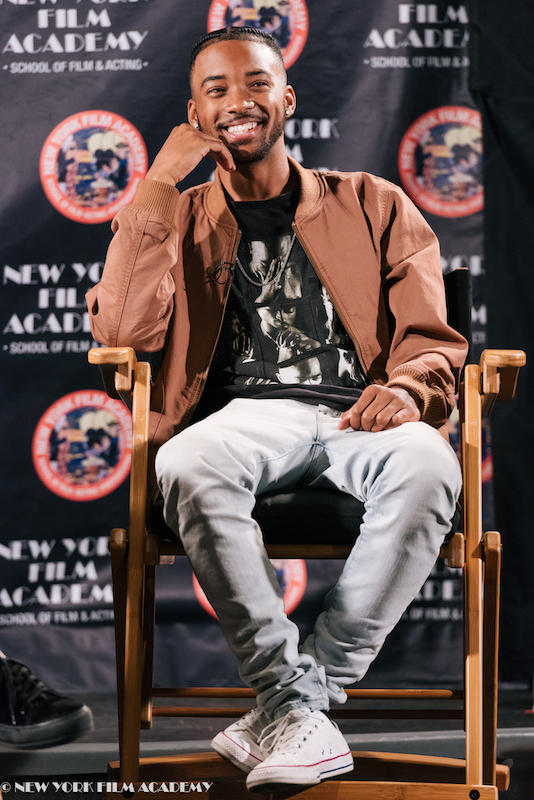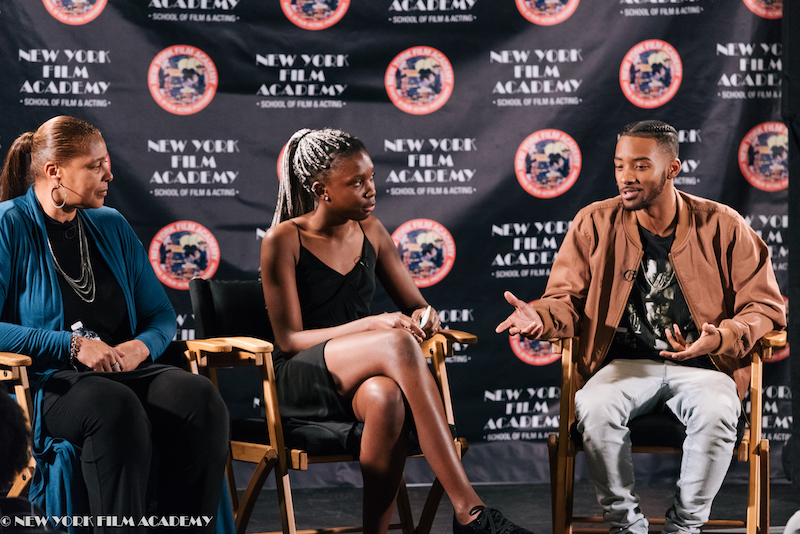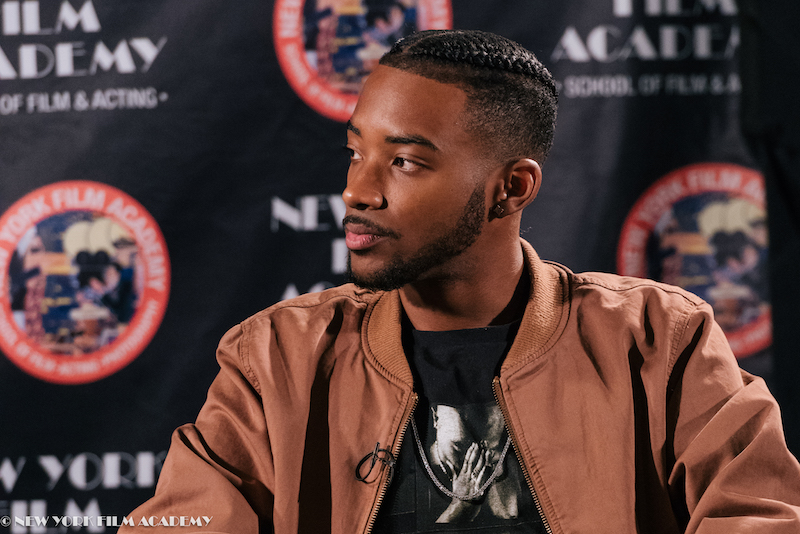The New York Film Academy (NYFA) Los Angeles African and Black American Club (ABA) held a special screening of Detroit on Monday, Feb. 5, 2018. Special guest speaker and actor Algee Smith was in attendance to give a Q&A after the screening. ABA Club President Furaha Bayibsa and Chair of Industry Lab Kim Ogletree moderated the event.
Bayibsa opened the evening by asking Smith how he got the job on Detroit.
The actor explained, “I was in rehearsals for the New Edition Story when I got the call from my agent to audition for a Kathryn Bigelow project.” At that point, the title of the film had not been released. Smith had no idea what he was agreeing to, but his agent was insistent he needed to go.
Detroit depicts events that took place at the Algiers Hotel two nights after the Detroit Riots during the summer of 1967. With the news media’s lens turned to police violence in 2017, the timely historical drama created a national conversation.
The audition process for the film was a unique experience for Smith. After a first audition with Casting Director Victoria Thomas, Smith was invited to come back and audition for Bigelow. At a mansion in the hills, Bigelow held a second, more unique, audition.
Bigelow directed behind a camera that Smith described as “old.” She asked the actors to sit in a circle and sing a song. Then, she told them, a police officer would burst in and throw them against a wall. She asked the actors to respond naturally at that moment. “She was trying to capture authenticity,” Smith said.
Though the character Smith plays (Larry Reed) is a living human being, Smith didn’t meet the man and inspiration for the film until after production had wrapped. When asked what his preparation for the role was Smith joked, “worrying and being nervous. I couldn’t call Larry or talk to his family. I had to rely on understanding the energy of the time period by researching the reactions of citizens to the event at the time it took place.”
During production, Bigelow relied on the element of surprise to get the most authentic reactions from her actors. Several of the actors playing police officers were given a script, but those portraying the hotel patrons did not receive a script. This gave the police officers in the scene total control. Everyone else could only react.
Smith explained, “She just threw us in there. … We didn’t know what would happen after that.”
Because of the surprises on set, the actors connected much more deeply to their characters’ lives.
“Even after leaving the set, I took a lot of that tension with me,” shared Smith. “The hotel we were staying in looked like a prison. There were bars on the windows and heavy locks on the doors.” Smith said it was challenging to leave the experience behind. “It was tough for me every day.”
When it was time for the Q&A, one student asked for Smith’s insights as a person of color in Hollywood today, asking, “How do you stay motivated when you’re profiled or rejected for a role because of your race? I think a lot of the Black actors at this school think about the discrimination they might face in the casting room once they graduate.”
Smith was candid with his response. “I don’t know if there were parts that had been kept from me because of my race. There very well may have been. Sometimes you hear casting directors say, ‘Oh, you were amazing in the audition, but we’re going with someone else,’ or, ‘we’re going in a different direction. ’ But you’ll never really know the reason why they made that choice.”
The New York Film Academy would like to thank Algee Smith for taking the time to speak with our students. See Smith next in Philip K. Dick’s Electric Dreams on Amazon and The Hate U Give, coming to theaters soon.


